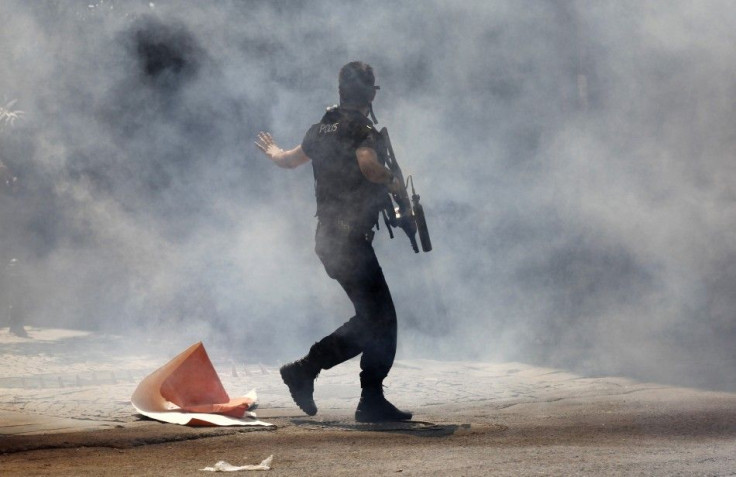Are The Kurds And Turks On The Brink Of Peace After Three Decades Of War?

About 100 members of the outlawed Kurdistan Workers’ Party (PKK) said they will lay down their arms and withdraw from Turkish soil in February as a concession to the ongoing “peace process” between PKK and the Turkish state.
The jailed leader of the PKK, Abdullah Öcalan, apparently called for the overture.
The PKK has been fighting the Turkish government for decades in an effort to win autonomy for the Kurds who dominate southeastern Turkey and account for about one-fifth of the country’s total population. The 28-year insurgency has cost tens of thousands of lives, and the PKK has been designated a terrorist group by Turkey, the United States and the European Union.
According to a report in Turkey’s Hürriyet Daily News, officials from Ankara’s National Intelligence Organization (MİT) and certain important PKK figures are engaged in secret talks.
Top MIT brass will reportedly meet with PKK leaders in Arbil, a city in Kurdish-ruled northern Iraq – where most of the militant group's thousands of members are based -- to discuss the PKK’s “decision for no action.”
During the PKK members’ withdrawal from Turkish soil, representatives from some NGOs will be on hand as “observers.”
Last December, Prime Minister Recep Tayyip Erdoğan revealed that Turkish intelligence has entered into informal talks with Ocalan – currently serving a life sentence on Imrali island – to end the war between PKK and Turkish security forces.
As part of this engagement, Ayla Akat Ata, a deputy of the Peace and Democracy Party (BDP) – which has already called for the PKK to lay down its arms – and Ahmet Türk, an independent deputy and chief of Kurdish umbrella organization the Democratic Society Congress (DTK), were granted permission to meet with Öcalan earlier this month.
Under a preliminary agreement that Ankara intelligence officials have entered into with Ocalan, the PKK will eventually lay down all arms in exchange for greater rights for Turkey’s large Kurdish population.
However, there has been no official confirmation of the PKK’s agreement to disarm.
PKK spokesman Roj Welat told Reuters: "The PKK officially has made no such declaration for the moment. There is no such information in our hands."
Indeed, a previous ceasefire call by Ocalan himself in 1999 (after his capture and imprisonment) led to the killing of hundreds of PKK militants by Turkish security forces.
As for Erdogan, he is likely anxious to keep details of peace negotiations at a bare minimum due to fears that they would alienate Turkish nationalists ahead of elections.
Separately, a report by the Turkish parliament’s Human Rights Investigation Commission suggested that the PKK is exploiting poor and uneducated Kurds.
The study noted that that 40 percent of the fighters in the PKK are minors (i.e., under the age of 18).
Today’s Zaman, an English-language daily, also said the study disclosed that that 78 percent of PKK fighters joined the organization having had no job in the civilian world, while an astounding 83 percent are poorly educated (possessing only primary school education).
The commission, led by Naci Bostanci, a deputy in the ruling Justice and Development Party (AKP), found that Kurdish males between the ages of 14 and 25 are the most likely to take up arms and join the PKK.
The body estimates that the PKK has about 20,000 members, 6,000 of whom can be considered “armed militants.”
Interestingly, only about three-quarters (73 percent) of PKK militants hail from Turkey – 12 percent come from Syria, 10 percent from Iran and 3 percent from Iraq, all of which have Kurdish minorities. Almost one-fourth (23 percent) of PKK members are female.
Fully one-sixth of all PKK recruits hail from the southeastern Turkish city of Diyarbakir, followed by Mardin (13 percent) and Van (8 percent).
In addition, PKK warriors tend to have short life spans.
The commission found that the average lifespan for a PKK militant is 26 years, while senior militants live somewhat longer -- 28 years.
The report also gauged the Turkish population’s attitudes towards the PKK and who is really controlling them – about 79 percent of Kurds in Turkey and 82 percent of ethnic Turks think Israel is, in general, backing terrorist groups in Turkey.
A slightly smaller number -- 65 percent of Kurds and 70 percent of Turks – believe the Bashar al-Assad administration of Syria is behind the PKK.
© Copyright IBTimes 2024. All rights reserved.





















